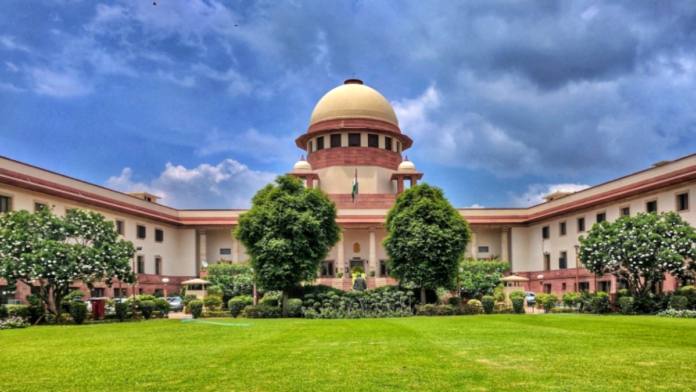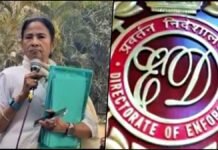
Key Points:
- Massive Setback for Bengal Government: Supreme Court upholds the Calcutta High Court’s decision to cancel 25,753 teaching and non-teaching staff appointments due to fraud in the 2016 recruitment process.
- Fraudulent Selection Process: The court ruled that the recruitment was “tainted by manipulation and fraud,” compromising its credibility and legitimacy.
- Fresh Recruitment Ordered: The state government has been directed to conduct a new selection process within three months, with exemptions for untainted candidates.
New Delhi: In a major blow to the Mamata Banerjee-led West Bengal government, the Supreme Court on Thursday upheld the Calcutta High Court’s decision to invalidate the appointments of over 25,000 teachers and non-teaching staff in state-run and state-aided schools. The apex court ruled that the 2016 recruitment process conducted by the West Bengal School Service Commission (WBSSC) was deeply flawed, marred by large-scale fraud and manipulation.
The Case at a Glance
The controversy stems from the 2016 State Level Selection Test (SLST), where over 23 lakh candidates competed for 24,640 vacant posts. However, WBSSC issued 25,753 appointment letters exceeding the available vacancies—and included candidates who had submitted blank OMR sheets. Allegations of bribes for jobs further tainted the process.
Chief Justice of India Sanjiv Khanna and Justice Sanjay Kumar observed that the selection process was “denuded of credibility and legitimacy” due to manipulation and fraud. The bench stated:
“All tainted candidates must be terminated as their appointments were fraudulent. There is no justification to interfere with the High Court’s decision.”
Court’s Directives
The Supreme Court issued several key directives:
- Termination of Appointments: All appointments made through the flawed process are nullified.
- Salary Relief: Candidates need not return salaries already received but will lose their positions immediately.
- Fresh Recruitment: The state is ordered to complete a new selection process within three months, allowing exemptions for untainted candidates.
Impact on Bengal’s Education System
The cancellation of appointments has created a significant vacuum in West Bengal’s education system. With thousands of teaching positions now vacant, concerns have been raised about disruptions in schools during ongoing academic sessions. The state government argued that segregating valid appointments from fraudulent ones would have been a better approach, but this plea was rejected by both courts.
Political Fallout
The ruling is seen as a major setback for Mamata Banerjee’s administration, which has faced criticism over corruption in public service recruitment. Former Education Minister Partha Chatterjee and other officials have already been arrested in connection with the scam. Opposition parties have intensified calls for accountability, accusing the Trinamool Congress government of systemic corruption.
What’s Next?
The WBSSC has been tasked with conducting fresh recruitment within three months under strict oversight. The Supreme Court emphasized transparency and fairness in the new process to restore trust in public hiring systems.
Similar Cases Across India
This case highlights broader concerns about corruption in government recruitment processes:
- In Tamil Nadu, irregularities in teacher recruitment led to legal battles affecting thousands of candidates.
- Maharashtra recently introduced reforms to ensure transparency in public sector hiring.
The Supreme Court’s decision underscores the importance of integrity in public recruitment processes. While it provides relief to untainted candidates, it also serves as a warning against systemic corruption. As West Bengal gears up for fresh teacher recruitments, all eyes will be on whether transparency can be restored in time to prevent further disruptions in its education system.
















































